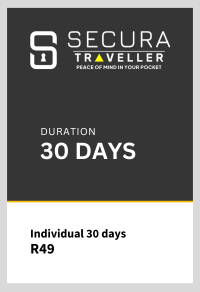Update on VAT Treatment for Supplies to FTOs
We wanted to give you an update on the Value-Added-Tax situation regarding suppliers to foreign tour operators (FTOs). As you know, this has been a frustrating and difficult issue for our industry.
Unfortunately, some members are facing unexpected assessments, leading to potential tax bills and penalties. It seems like SARS might be taking a blanket approach, viewing us as principals rather than agents.
The key question is whether we're simply helping overseas tour operators (which could mean zero-rated VAT) or if we're directly providing those tourism services ourselves (which means VAT might be due).
SATSA taking up the cause
SATSA has taken active steps to address these VAT concerns with suppliers to foreign tour operators (FTOs). It's been a multi-pronged approach:
- PwC study: We commissioned a study by PwC to assess the inconsistencies in VAT treatment among our members. This study highlights the urgent need to get everyone on the same page regarding VAT.
- Lobbying for change: We reached out to key players, including advisors to past Ministers of Tourism and National Treasury, to lobby for legislative changes or clear regulations.
- Working with SARS: We directly engaged with SARS' Legal Advisory Policy Team. They recognised the need for clear industry guidelines and initially seemed supportive of developing them. Unfortunately, despite these efforts, SARS says they can't help us right now due to ongoing legal proceedings. Instead, they advise us to follow the standard procedures for dispute resolution, voluntary disclosure, and payment deferral.
Recent Developments
In December 2022, a judgement was issued in the Tax Court case of KEN CC v CSARS, VAT2218 (VAT) [2023] ZATC CPT. This case was specifically about how VAT works when dealing with foreign tour operators (FTOs). The court ruled in KEN's favour, confirming they acted as an agent for the FTOs (and not a direct supplier) and local suppliers knew this. Interestingly, the fact that KEN kept its commission amounts confidential wasn't a major issue for the court.
The big takeaway? SARS' approach didn't line up perfectly with its own guidelines or a previous case they relied on (XO Africa Safaris v CSARS, [2016] ZASCA 160). The facts in this new case were significantly different.
On this basis, KEN was successful, and the Tax Court confirmed that the zero rate was correctly applied.
PwC issues tax alert
In February, PwC issued a Tax Alert (click here to access the alert) following the KEN CC vs. SARS case. The alert highlights contradictory court rulings which make it a total headache to know if we're agents (meaning zero-rated VAT) or principal suppliers (meaning standard VAT).
PwC highlights a 2022 Tax Court ruling where the company got to zero-rate VAT because they were an agent. But this clashes with a 2016 Supreme Court decision where the company was treated as the main tourism supplier. The alert basically says these different rulings have ‘muddied the rules’ of the "agency relationship" concept.
Key takeaways from this alert:
- Even if we're all in tourism, our VAT could be different. Each company needs to figure out the right VAT based on its specific circumstances and business setup.
- VAT is a tax on transactions. The proper VAT treatment must be decided by looking at the contractual agreement between the parties involved in the transaction.
- Understanding our business operations and any unique aspects is crucial, as these might affect how the VAT rules apply to us.
- This case reminds us that we can't assume our VAT is the same as another tour operator. Each company's situation gets evaluated based on its contracts and how things operate.
The main point is this: VAT is determined case-by-case, depending on the details of those transactions and our individual business models. Contractual details and our specific way of operating are key when figuring out the right VAT treatment.
Current status of the issue
This alert underscores the tourism industry's need for clear, practical VAT regulations that reflect the realities of modern business and promote the competitiveness of South Africa’s tourism sector. Settling this VAT treatment is crucial. Continued disputes and inconsistent court rulings only add to the challenges we face. We need rules that focus on the underlying legal relationships, not simply on the location of personnel.
Thanks to contributions from five SATSA members, we've been working closely with PwC to gain clarity on this issue. Initial discussions with SARS appeared positive but ultimately did not produce a resolution.
Our efforts are currently on hold. Recent communications indicate that SARS is unwilling to engage on this matter due to pending court cases, particularly the ongoing KEN CC vs. SARS case. Tax Executive at ENSafrica, Charles de Wet, states: “SARS has applied and been granted leave to appeal to the Supreme Court of Appeal.”
The next steps
De Wet points out that the KEN case shows how important it is to make sure your VAT position is backed up by clear contracts and a good record of how things actually work in your business. It also shows why it's important to communicate consistently with SARS and keep super detailed records (even beyond the usual five years).
Here's what SATSA members should do now:
- Take a close look at the contracts you have with other companies.
- Double-check that your VAT accounting and records are totally accurate, up-to-date, and leave no room for questions or mix-ups.
- Have a clear, well-written explanation of how your business operates ready to go, so you can easily share this information with SARS.
"The Tax Court judgement is good news because it has, in a comprehensive judgement, confirmed that the SARS approach in audits has been incorrect without a detailed understanding of how the industry operates. Given the clear finding on the facts, one would hope that the Supreme Court of Appeal would endorse the finding of the Tax Court," says de Wet, adding that the complainant in the KEN CC vs SARS case made it easy for the Tax Court to make a factual finding based on their robust documentation presented.
For now, BDO South Africa, a SATSA partner, is available to help members with any VAT worries they might have. You can contact BDO’s Cliff Watson:
Cliff Watson
Director
Tax
Direct: +27 10 590 7479
Mobile: +27 83 677 2778
CWatson@bdo.co.za
We know this is a complicated issue, so thank you for your patience as we work through it! Our goal is to get a good outcome that benefits all SATSA members.























